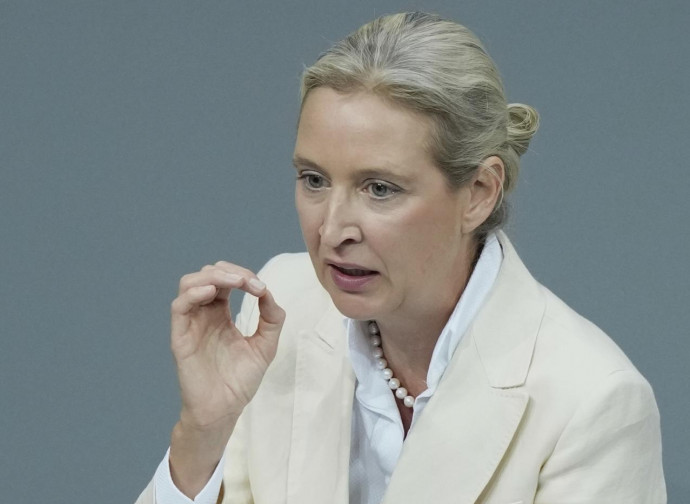Political discrimination returns to Germany. And it's not making headlines
It's not yet law, but almost: The interior minister of Rhineland-Palatinate announced a regulation excluding anyone who is or has been a member of the Alternative for Germany (AfD) party from local public employment. But no one is scandalized.

The interior minister of the German state of Rhineland-Palatinate, the fourth most populous state in Germany, announced that all members of the right-wing sovereignist party Alternative for Germany (AfD) will be barred from public employment within its territory. This means teachers, local police officers, regional officials, and public transportation drivers who are also party members will not be allowed to work in the public sector.
Rhineland-Palatinate's interior minister, Michael Ebling, announced a local law with retroactive effects. It is not enough to have had an AfD membership card in 2025 to be excluded from public employment; having had one in the last five years is sufficient. Therefore, even those who have renounced their party membership are excluded. This even involves those who voted for the Social Democrats and elected Ebling. Those who have sympathized with the AfD in the past can no longer be bus drivers, local police officers, teachers, or civil servants in their region. The measure is retroactive in another way as well: Those who already work for the state and are or have been members of the AfD, whether recently or in the past, must be dismissed. This includes those who have signed a regular collective agreement, passed a competitive exam to get the job, and are model employees.
The indignant reaction of AfD leader Alice Weidel is understandable. She told the German newspaper Bild that she was "shocked that there is such discrimination on the basis of one's political views." She believes that "the most basic principles of democracy have been trampled on here." Yet what is less understandable is that this news has not made headlines, except for a few brief mentions in the foreign press. The decision was announced last week and has had no impact on public debate. Yet, if implemented, the regulation would be unprecedented in many respects.
For one thing, it is happening in Europe's leading economic power, a country that has been a model of democracy, especially since reunification in 1990. It is not a country that has recently become democratic; it is a true showcase of the West. Therefore, the imitation effect could be easier in other Western democracies. We are already seeing this within Germany. After Rhineland-Palatinate, the Social Democratic Party proposed doing the same in Schleswig-Holstein, which borders Denmark.
Second, the regulation reveals the political influence of the secret services, which have intervened directly in the democratic process in this case. In fact, it is the German secret services, particularly the Office for the Protection of the Constitution, that labeled the AfD an "extremist organization." Without a trial or court ruling, a legally registered party that has been represented in parliament for over a decade has effectively been ostracized. Although the label has been suspended pending a ruling (the AfD filed a lawsuit), decisions such as that of the Rhineland-Palatinate local government show that it has serious consequences in the short term, before the case even comes before a judge.
Third, it reveals how arbitrary state bodies' judgments are towards parties. In fact, there is no specific accusation against the AfD. The party cannot be condemned for reconstituting the National Socialist Party because it has no programmatic affinities or figures in common with the former regime. Even though many contacts with Putin's Russia have been proven, this accusation does not seem to particularly concern the German authorities. They have nothing to say or do about the left-wing BSW party, which is more pro-Putin than the AfD. Furthermore, there have been no incidents of terrorist violence linked to the AfD, nor are there any armed organizations associated with it. Finally, electoral authorities have always authorized the candidacy of party members. Currently, the party is the second most voted for in Germany. Therefore, according to German law, it has been considered legal until the 2024 vote. The point is that we do not know what conclusions the German secret services have drawn because their 1,000-page report has never been published. We only know of a few excerpts for the press that mention concerns about the AfD's views on immigration and immigrants, which are allegedly incompatible with the constitution.
Fourth, it introduces a dangerous principle of retroactivity into law that affects everyone, not just AfD members in Germany today. You can be punished for actions that were legal at the time. Currently, only in China and Hong Kong are dissidents being tried for demonstrations that were legal at the time. However, China is not a relevant reference point because it is a totalitarian regime. Today, however, it means that joining a legal and well-established political party could cost me my job in five years, even if I cancel my membership or choose not to renew it.
